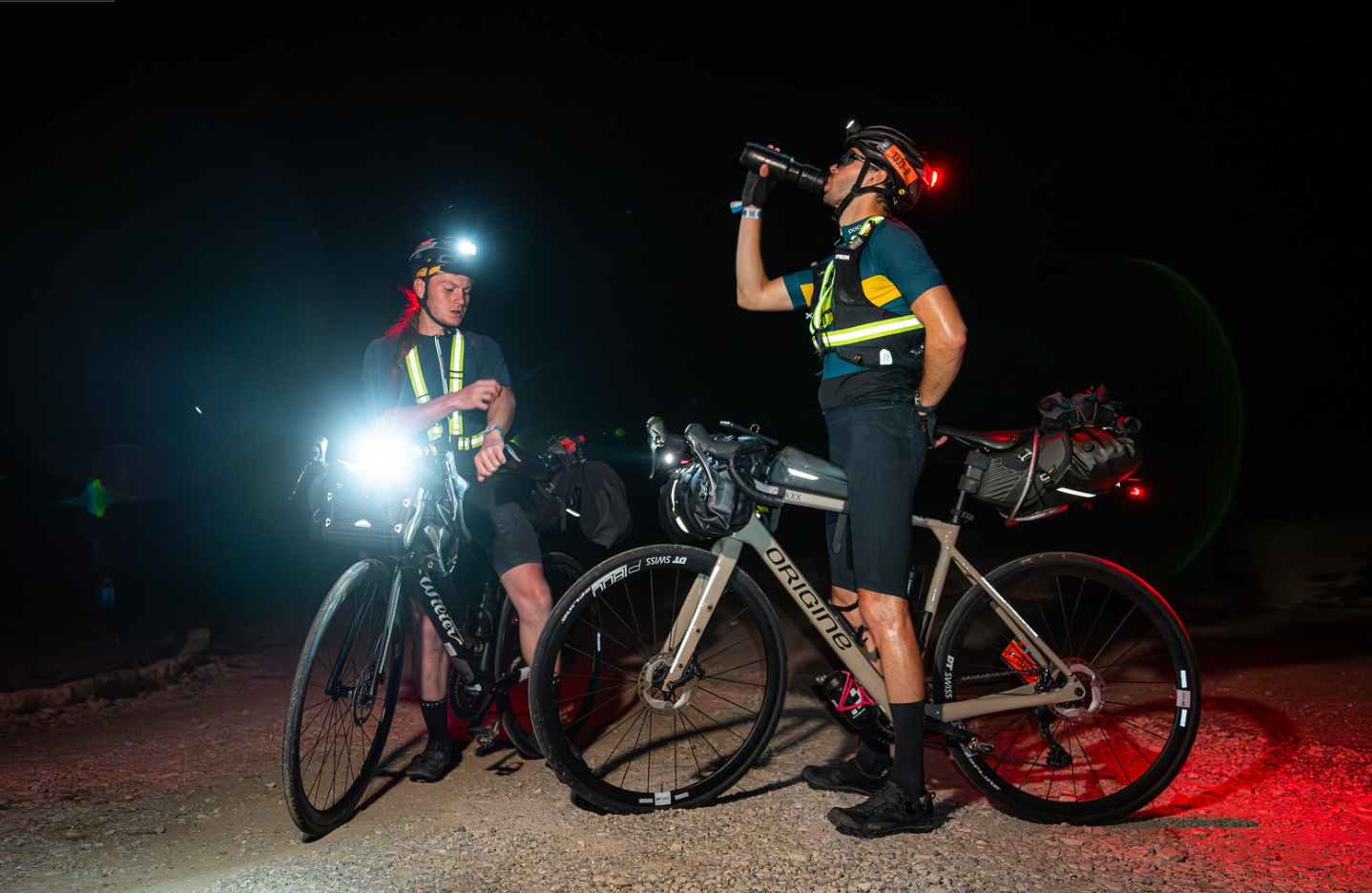Why ultracycling? 10 good reasons to start
Ultracycling is a discipline that is attracting more and more cycling enthusiasts. These extreme endurance events, ranging from several hundred to several thousand kilometers, push cyclists to exceed their physical and mental limits.
But why take up ultradistance cycling? What motivates ultra-cyclists? In this article, discover 10 reasons to take up ultracycling and turn this sporting adventure into a true inner and outer journey.
A Race Across France participant in full effort on French roads, a symbol of surpassing oneself and endurance. Tristan (@tristankz_)
1) Push back your personal limits
Every long outing resets the meters: new distances, changing weather, unforeseen terrain. Little by little, you realize that your limits were mainly mental. You learn to manage your pace, fatigue and moments of doubt, and you discover a unique satisfaction: holding on when the going gets tough... then surprising yourself by going further than expected.
Remember: move forward regularly, accept the "off" days, celebrate every little victory.
2) Discover exceptional landscapes
Passes, panoramic roads, coastlines, plateaus, forest paths: ultracycling opens doors to places you'd never see by car. Early-morning starts or night-time passages transform the perception of places: the world seems bigger, quieter, more authentic. You come back with your head full of images and the desire to set off again.
Pleasure tip: plan an itinerary that alternates hills, valleys and rolling sections to maintain your sense of wonder.
3) Join a passionate community
Races, gatherings, local clubs or online groups: you'll find support, advice, feedback and... a lot of goodwill. We share the same curiosity, the same desire to explore. Roadside encounters often become lasting friendships, and motivation naturally rises when you feel supported.
Motivation bonus: signing up for an event (e.g. an ultradistance race) provides a framework and a concrete objective.
4) Developing life skills
Ultra training teaches you planning, effort management,organization and gentle discipline (the kind you really stick to). You decide better, you anticipate, you manage the unexpected without panicking. These reflexes are useful everywhere: at work, in personal projects, when traveling. It's a school of pragmatism... and patience.
Transferable to everyday life: prioritizing, breaking down a big goal into simple steps, staying calm under pressure.
5) Experience an unforgettable personal adventure
Every event, every long outing has its difficult moments and its magical ones: sunrise at the summit, silence at night, complicity with other cyclists, a feeling of freedom. These are memories that last a lifetime, far beyond the numbers.
Here's a little idea: keep a notebook (or a few notes) after outings to record progress and beautiful moments.
6) Overcoming fears and obstacles
Two ultracyclists stop at night to hydrate and adjust their gear. Reflective vests, headlamps and bikepacking bikes ensure visibility and autonomy. Photo credit: © Edouard Hanotte ( @edhanot)
The weather turns bad, the road climbs, morale drops: ultracycling teaches you to adapt. You prepare a plan B, slow down, eat, cover up and set off again. After a while, you build up a quiet confidence: you know you can get through a tricky section and get back into the rhythm.
Useful reflex: focus on the next "small goal" (the next bend, the next fountain...) rather than on the big picture.
7) A mental as well as a physical challenge
Legs count, but the head holds the helm. We learn to keep calm, to breathe, to reframe our thoughts ("it's hard" → "it's a stage"). These mental tools turn difficult passages into progress. You become more patient, more regular, more lucid.
Simple tools: visualize the key climb, calm breathing, short mantras ("calm and steady"), micro-objectives.
8) Set ambitious... and realistic goals
Taking part in a long-distance race or hike means setting yourself a clear goal. You cut out the preparation, you test your equipment, you see the progress you've made week after week. The finish line becomes a personal victory - and a starting point for the next one.
Tip: choose an objective "a little above" your current level, with a plan B if the weather or fitness levels don't allow it.
9) Balance sport and exploration
Ultracycling combines performance and discovery. You learn to pace your effort so as to retain the pleasure of exploring: stopping for a view, testing a trail, riding at night to see the sunrise. This balance maintains motivation over the long term.
Idea for outing: plan a "bingo" point (lake, belvedere, village café) to combine effort and reward.
10) Inspire others
Your approach can inspire your friends and family to get moving, to give it a try, to set themselves a challenge. Many also ride to support a cause: fundraising, awareness-raising, tribute. Ultracycling then becomes a way ofmaking a positive impact around you.
Snowball effect: simply recounting your experience (without "numbers" performance) often inspires more than you think.
Conclusion
Ultracycling isn't just about riding for miles. It's an inner and outer journey that teaches you to know yourself, to adapt and to enjoy the road. You progress at your own pace, broadening your horizons and building lasting confidence.
Want to give it a try? Choose a reasonable objective, prepare it simply, test your equipment... and let the road do the rest. 🚴♂️✨


